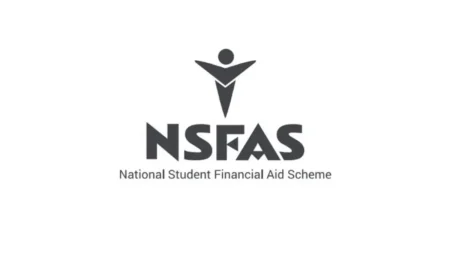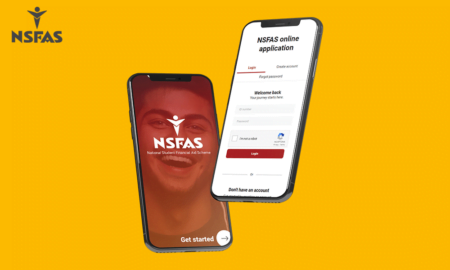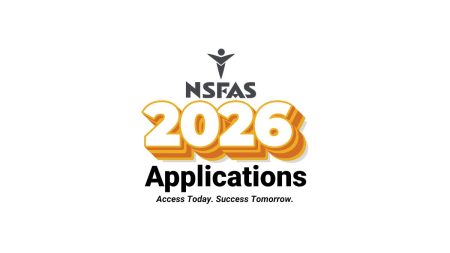Thousands of NSFAS-funded students across Gauteng are reporting delayed or missing allowance payments in 2026. The issue affects both university and TVET students who rely on monthly NSFAS allowances for accommodation, food, and transport. While NSFAS has confirmed that funding decisions for 2026 were concluded before the academic year began, payment delays are still occurring due to documentation gaps, registration issues, and appeal backlogs.
According to a January 2026 NSFAS media statement, all 2026 funding applications were processed before the start of the academic year, and students can view their funding status via the NSFAS portal. However, funding approval does not automatically guarantee immediate allowance disbursement.
Here’s what could be causing the delay, and what students need to check.
ALSO READ: NSFAS Propensity Letter Explained: Who Needs It and How to Submit It in 2026
Registration Data Not Submitted by Institutions
One of the most common reasons for non-payment is incomplete or missing registration confirmation.
NSFAS requires institutions to submit verified registration data before allowances are released. If a university or TVET college has not uploaded or confirmed your academic registration, payment cannot proceed.
This is particularly relevant for:
- First-year students awaiting matric result verification
- Students who changed qualification codes
- Students who registered late
First-time entrants may still require confirmation of valid acceptance before funding activation. If your funding status shows “Funded” but no payment reflects, the delay may be linked to institutional data submission.
Incomplete Documentation on the NSFAS Portal
Students with an “Incomplete” status will not receive allowances.
Incomplete applications are those awaiting required documentation, including:
- Parental consent forms
- Completed NSFAS Declaration Forms
- Household income verification documents
Students have a strict 30-day window to submit outstanding documents. Applications that remain incomplete after 30 days are deemed unsuccessful.
Even if you believe you submitted documents, verify:
- They were uploaded correctly
- They are legible
- They were formally approved
Banking Details Not Verified
Incorrect or unverified banking details frequently delay direct allowance payments.
For TVET students in particular, NSFAS uses a direct payment method that requires students to:
- Register their own bank account
- Ensure the account matches their ID
- Confirm details on the myNSFAS portal
If the banking information does not match official records, the payment may be blocked.
Students should check:
- Bank account number
- Account holder name
- Branch code
- Active status of the account
A simple typo can prevent disbursement.
Appeals Still Under Review
If your funding was initially rejected and you submitted an appeal, your allowance may be delayed pending review.
Rejected students have the right to appeal. However:
- Appeals require supporting documentation
- Students have 30 days to submit all documents
- Incomplete appeals are not processed
Allowance payments only resume once an appeal is approved.
In Gauteng, where institutions such as the University of Johannesburg, University of Pretoria and Tshwane University of Technology have high volumes, appeal processing timelines may affect payment schedules.
Qualification Code Discrepancies
Qualification code discrepancies have previously affected disbursements.
These discrepancies occur when:
- The qualification registered with the institution differs from what NSFAS has on record
- Students changed programmes
- Programme codes were not updated correctly
Students should verify that their qualification details reflect correctly on the myNSFAS portal.
Accommodation Accreditation Issues
If you are living in private accommodation not yet accredited, your accommodation allowance may be delayed.
NSFAS processes accommodation payments separately from living allowances. If an accommodation provider has not submitted required invoices or claims through official channels, payment may not reflect.
NSFAS has indicated that it is clearing outstanding accommodation claims and working with providers on short payments.
Budget or Allowance Category Adjustments
Certain allowances depend on:
- Programme type
- Distance from home
- Accommodation status
- Institutional category
Students sometimes assume they qualify for all allowance categories when they may only qualify for specific components.
If you received tuition coverage but no living allowance, it may be linked to eligibility criteria rather than a system error.
What This Means for Gauteng Residents
Gauteng has the highest concentration of NSFAS-funded students in South Africa. Thousands depend entirely on monthly allowances for food, rent and transport.
A delayed allowance in Johannesburg, Pretoria or Ekurhuleni can immediately affect:
- Accommodation security
- Transport access
- Food affordability
- Academic attendance
While NSFAS reports that funding decisions were finalised before the academic year, payment delays often relate to administrative verification processes between institutions and the scheme.
Students should act quickly if delays persist beyond the normal disbursement cycle.
What Students Should Do Immediately
If your NSFAS allowance has not been paid:
- Log into the myNSFAS portal and check your funding status.
- Confirm your banking details are correct.
- Contact your institution’s financial aid office to verify registration submission.
- Check whether any appeal documents are outstanding.
- Use official NSFAS contact channels for queries.
Avoid relying on social media speculation. Only official portal updates confirm payment status.
Frequently Asked Questions
1. My status says “Funded” but I haven’t been paid. Why?
Your institution may not have submitted your registration data, or your banking details may not be verified.
2. How long does NSFAS take to process appeals?
Appeals are processed on an ongoing basis. Students must submit documents within 30 days.
3. Can incorrect banking details stop payment?
Yes. If account details do not match your ID, payment may be blocked.
4. What does “Incomplete” mean on the portal?
It means required documents are missing or pending approval.
5. Are TVET payments processed differently?
Yes. TVET students must use the NSFAS direct bank payment system.
What Happens Next?
NSFAS has indicated that it is working to resolve outstanding issues, including mop-up payments and short accommodation claims.
Students are advised to monitor their portal regularly, particularly during appeal windows and result release periods.
Further updates are expected as institutions finalise registration submissions and outstanding documentation is verified.
Allowance delays remain administrative in nature, but early verification remains the most effective way to prevent prolonged disruption.
Status Check will continue monitoring NSFAS updates affecting Gauteng students.










